Tasmania is expected to foot a massive compensation bill for child sexual abuse victims
Child sexual abuse compensation claims are expected put a massive dent in the state’s finances, with the government warned it “can’t walk away” from its duty of care.
Police & Courts
Don't miss out on the headlines from Police & Courts. Followed categories will be added to My News.
TASMANIA’S leaders are being urged to set aside funds for a potential billion-dollar bill, as an avalanche of child sexual abuse survivors prepare to sue the state.
Several victims have already lodged civil claims over historic abuse at the Ashley Youth Detention Centre, in public schools, orphanages, and at the hands of prolific Launceston General Hospital predator James Geoffrey Griffin.
But that is just the tip of the iceberg, with hundreds more claims expected to be lodged by the end of the year over child abuse suffered at the hands of state employees across a range of government institutions.
Over the coming years, the cost of compensating survivors for their pain, suffering and economic loss is expected to blow out to many millions of dollars – or more.
The current state of play
So far, $23.9m has already, or will be, paid to Tasmanian victims of historic institutional abuse through the National Redress Scheme.
The scheme is funded by the commonwealth and state governments as well as most of the country’s major religious and charitable organisations as a litigation-free way of providing compensation to their massive numbers of victims.
But the scheme’s payouts are capped at $150,000, with an average of $80,000 for each claim.
Comparatively, a survivor who sues the state government through the courts could be compensated as much as $200,000 for pain and suffering plus $1 million or more for economic loss.
Currently, the biggest claim ever to be paid for historic child sexual abuse in Tasmania is understood to be $1.2 million – which was awarded in August to a former detainee of the now-notorious Wybra Hall boys’ reformatory.
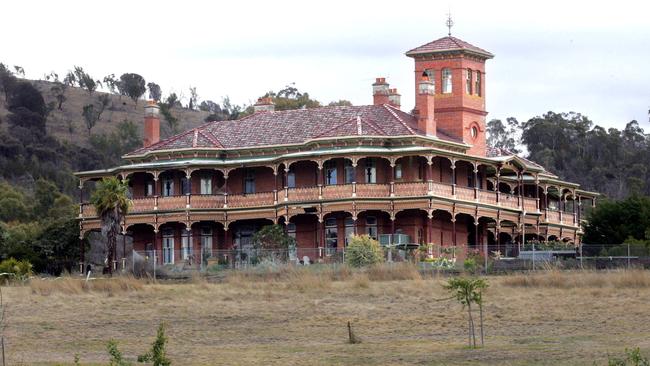
The Tasmanian government, in its 2021-22 budget, committed $70 million over 10 years to meet compensation and administrative costs under the scheme.
The budget also noted the government would need to set aside extra money to cover costs associated with the upcoming Commission of Inquiry into the government’s responses to child sexual abuse in institutional settings, as well as future costs arising from its recommendations.
However, the government has not yet answered how it plans to budget for the surge of civil claims about to make their way through the Supreme Court of Tasmania.
“While we won’t speculate on hypotheticals, the Tasmanian government has committed to meet the costs of civil claims just as we have done in the past,” a spokesperson told the Mercury.
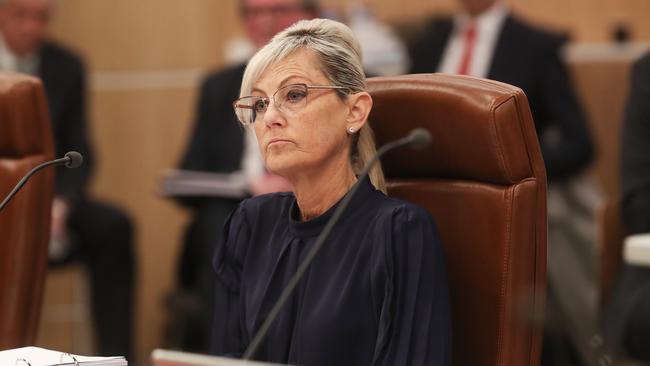
Improving child safety
Lawyer Angela Sdrinis, who is preparing a class action for about 100 former Ashley detainees allegedly abused at the facility, plus a further 50 individual cases, said the government must consider how it will protect children in the future.
“The government has to start putting money in at the front end, for example in child protection, if it wants to save money at the back end, that is, litigation,” she said.
“And that is quite apart from the cost of human suffering that has been caused by the failures of successive governments.”
She said penalising the state government was a powerful way to improve its conduct.
“The beauty of our common law system is that it has the capacity to change institutional behaviour for the better because it hits the hip pocket nerve by publishing negligent conduct that causes injury,” she said.
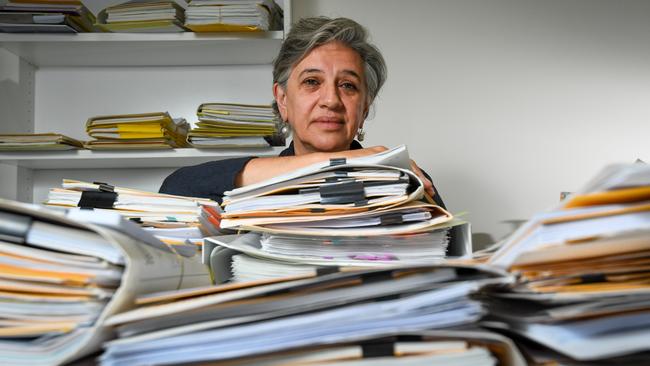
Rowena Macdonald, new Tasmanian president of the Australian Lawyers Alliance, said the government needed to ensure it put aside money “in every state budget to finalise these claims”.
“The state failed in its duty to children in the care of the state and it has a moral and legal responsibility to pay fair compensation to survivors. It’s imperative that the government doesn’t short-change survivors in an exercise in fiscal meanness,” she said.
“They can look at other jurisdictions where matters have been resolved through the courts so they can get an idea of what they’re looking at. They’re not completely in the dark.
“They can’t walk away from the fact they failed in their duty of care.”
She said survivors deserved more than the capped compensation of $150,000 through the National Redress Scheme.
“That doesn’t go anywhere near enough to recognising the impact that child abuse can have on a person’s life,” she said.
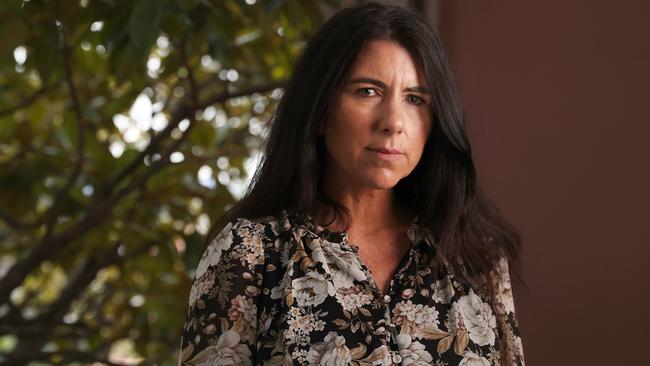
Specialist institutional child abuse lawyer Sebastian Buscemi, who is acting for victims of serial predators like Darrel George Harington, said the state’s Department of Education had willingly continued to employ paedophiles to work with children despite repeated accusations.
Mr Buscemi has long demanded the department answer whether its actions were “extremely serious negligence”, whether it was “wilfully blind”, or if the moving of offenders from school-to-school was an “intentional cover-up”.
He said the government should expect a huge reparation bill.
“Tasmania has a lot of money and assets but there are just so many victims,” he said.
“Plus the compensation would be significantly higher than mainland cases because of the government’s degree of knowledge. People in government knew they had predators in their midst and chose to do nothing about it.”
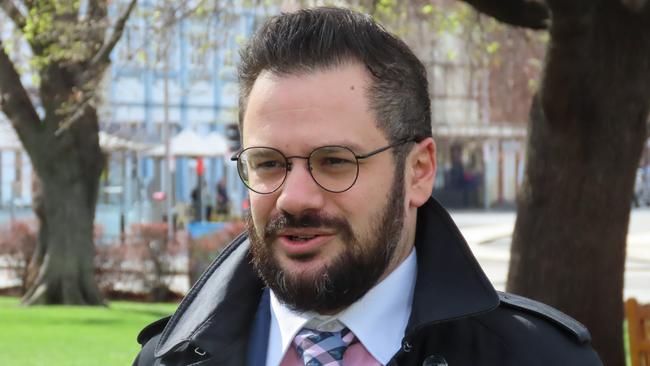
Could Tasmania go bankrupt?
The short answer is in theory, yes.
But that won’t happen as a result of compensating historic child sexual abuse survivors.
It wouldn’t even happen in a theoretical scenario where the Supreme Court of Tasmania ordered 1000 claimants each be paid $1.2 million by the state government.
Economist Saul Eslake said the government was already expecting a $3.5 billion deficit by the end of financial year 2024-25, down from a previously expected deficit of $4.3 billion, “and the sky did not fall in”.
“Relative to our state income, Tasmania’s debt would still be smaller than most of the other states,” he said.
“We have had worse in the past. It would not go bankrupt.”
Mr Eslake said if the government did consider that level of debt too high, it could do what the Anglican Church was currently doing, and sell off some of its assets.
He said the state government had assets of $22.3 billion, including land and buildings to the tune of $7.5 billion, but liabilities of $12.9 billion.
It also owned $6.1 billion in infrastructure assets, as well as $4.9 billion in government business enterprises, such as Hydro and Aurora.
Mr Eslake said history also showed the federal government would usually step in as a final measure to bail out Australia’s states or territories that had run into dire financial straits.
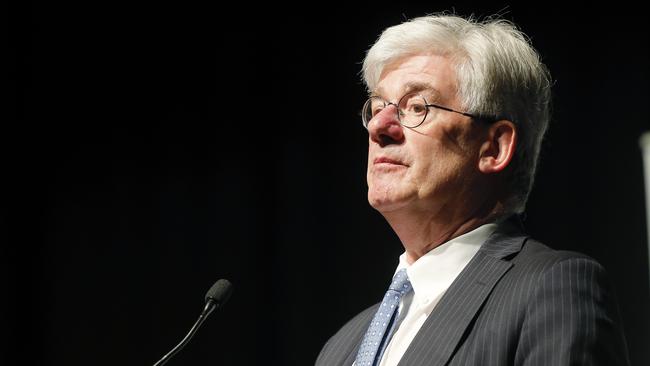
Labor justice spokeswoman Ella Haddad said it would be “worrying in the extreme” if the state government started making “any kinds of noises” about paying out survivors.
“They’re going to have to find a way to meet these expenses. To do otherwise would be to deny the experience of survivors,” she said.



